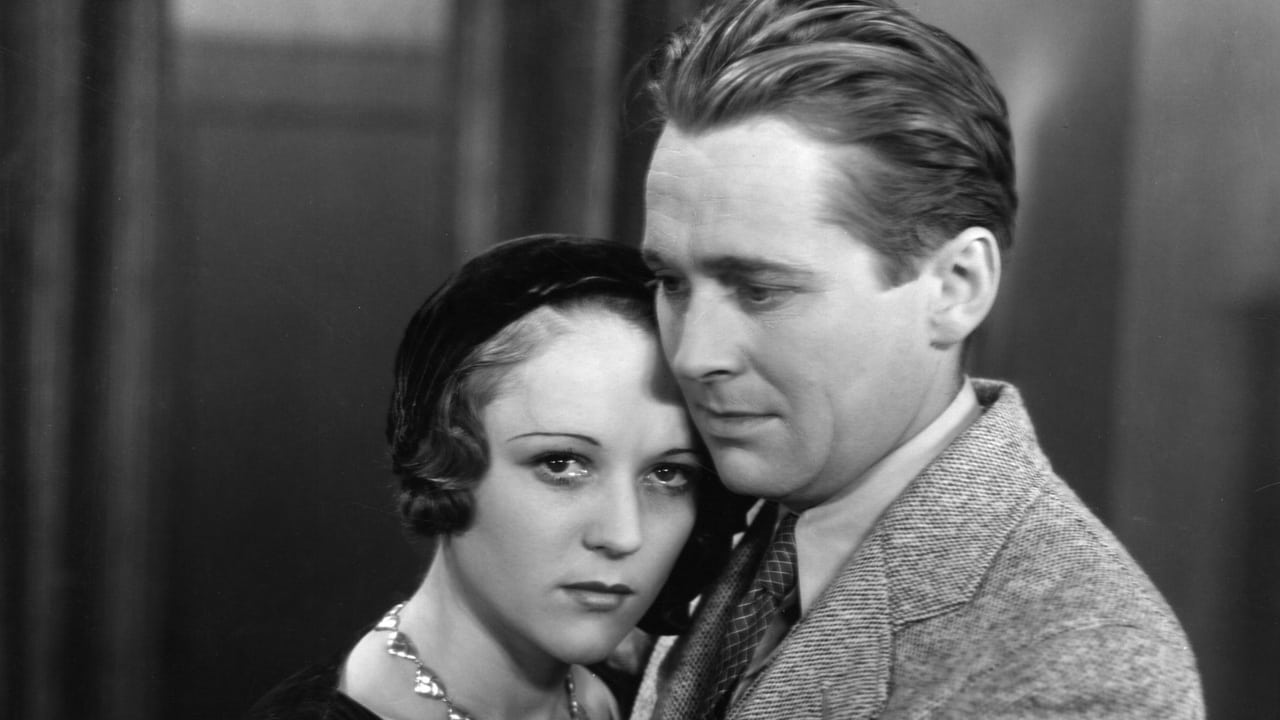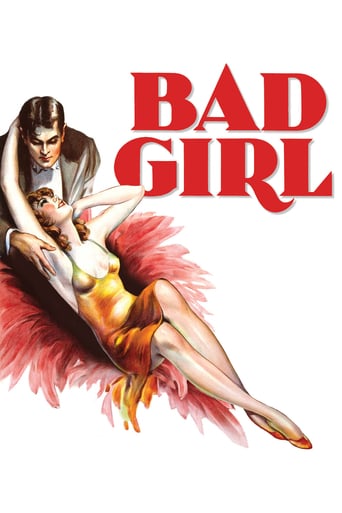

Frank Borzage enjoyed a long and successful Hollywood career first as a leading man and then as one of the cinema's great romantic directors, but is relatively neglected today; his fan base today being fairly small but ardentlyly and deservedly devoted. In his prime Borzage was evidently held in esteem within the industry itself, as his two Oscars attest. Major achievements like 'Man's Castle', 'Little Man, What Now?', 'Three Comrades', The Mortal Storm' and 'Moonrise' still lay ahead when Borzage collected his second and last Oscar in a strong year in the face of competition from contemporaries of the calibre of Mervyn LeRoy, Ernst Lubitsch, Rouben Mamoulian, King Vidor, William A. Wellman and James Whale, just for starters.So what was this trivial-sounding film that earned Borzage an accolade he never received again? Despite it's obvious contrivances (Eddie's boorish behaviour when they first meet should have promptly nipped any possibility of romance in the bud, would fantastically expensive top gynaecologist Dr. Burgess really have been such a soft touch?, and the happy 'ending' resolves nothing), Borzage works his magic with pretty thin material with the help of attractive players, particularly James Dunn, making his feature film debut. It's certainly easy to imagine that few at the time managed to get through it with dry eyes, and it's still worth your time today.
... View MoreThis pre-code drama, nominated for a Best Picture Oscar, is a delightfully witty yet potentially tragic melodrama about a pretty young model (Sally Eilers) who turns down all the wrong guys until she finds what she thinks is the right guy (James Dunn). They stay out all night together much to her reluctance, and the fact that she has a very domineering brother (William Pawley) makes her fear his reaction to her becoming engaged. While waiting for Dunn to show up so they can be married, she learns that he's moved out of his apartment and been fired from his job. Fortunately, she has a friend in the outspoken Minna Gombell who was prepared to marry her brother and walked out on him after he insulted his sister. This clever scene has Gombell seemingly supporting everything Pawley says to see how far he goes, and when his brutality takes an extremely cruel turn, the truth about how she feels comes out. Gombell is very clever in her admission of why she broke up with him, telling Eilers, ""He saved my life. They send you to the chair these days for killing your husband." Dunn shows his cynical sense of humor after hearing one of Eiler's neighbors fighting retorting, ""There's a tenement for you. A woman dies, a baby is born, and a guy's wife won't let him eat Limburger."This clever script is as juicy as anything they were writing over at Warner Brothers for Joan Blondell or Barbara Stanwyck to spout and just as filled with insinuations as the dialog that Mae West would soon be uttering over at Paramount. When Gombell comforts Eilers, she has tears behind her laughter, telling her younger brother when Dunn finally does show up, "Open the door, Floyd, and if it's a man selling coffins, tell them we'll take two!" The drama occurs because Dunn gives the insinuation that he doesn't want children, but she's pregnant from the night they stayed out planning their future together. Not necessarily a great husband, Dunn spends more time trying to find work (eventually turning to prizefighting) than supporting his pregnant wife which brings Gombell down on him. So is she really a bad girl? Obviously in the eyes of her brother who raised her after their parents died and is morally appalled by the fact that she would marry Dunn so quickly rather than get his approval. Crisply directed by Frank Borzage with an excellent screenplay, this is one of those early sound films that really sounds true to life and touches the emotions. Truly worth a re-discovery, and in viewing the film, it is easy to see why it won Oscars for screenplay and direction.
... View MoreAn interesting little Borzage love story set during the Depression, detailing the struggles of young couple (Sally Eilers & James Dunn) with their hopes and dreams. Curiously Borzage won his second Oscar as Best Director for this oddly heady little movie and that's perhaps the only reason to watch it. It works as a timepiece of its era. But I definitely wouldn't call "Bad Girl" one of Borzage's best romances (in many ways it strikes me as turgid and unaffecting in several moments, and I didn't like the ending), but it is definitely worth catching if you are fan or a student of the director's sublime and unheralded oeuvre.
... View MoreUnfortunately, this is apparently a very scarce film, not available on VHS or DVD, and seldom if ever broadcast. However, as a fan of Vina Delmar I have read the novel upon which the film is based, and must point out that the story takes place in 1923. This was the flapper era, the roaring twenties, the jazz age . . . and the era of Prohibition!A very different period from that of the Great Depression, which began in 1929, and was two years old when the film was made.Whether the story line was changed to place the story in Depression-era New York instead of Roaring Twenties New York, is interesting to consider. I would dearly love to see this film, and to see how well it lives up to the very fine novel by Vina Delmar, BAD GIRL.Regis Hardy
... View More